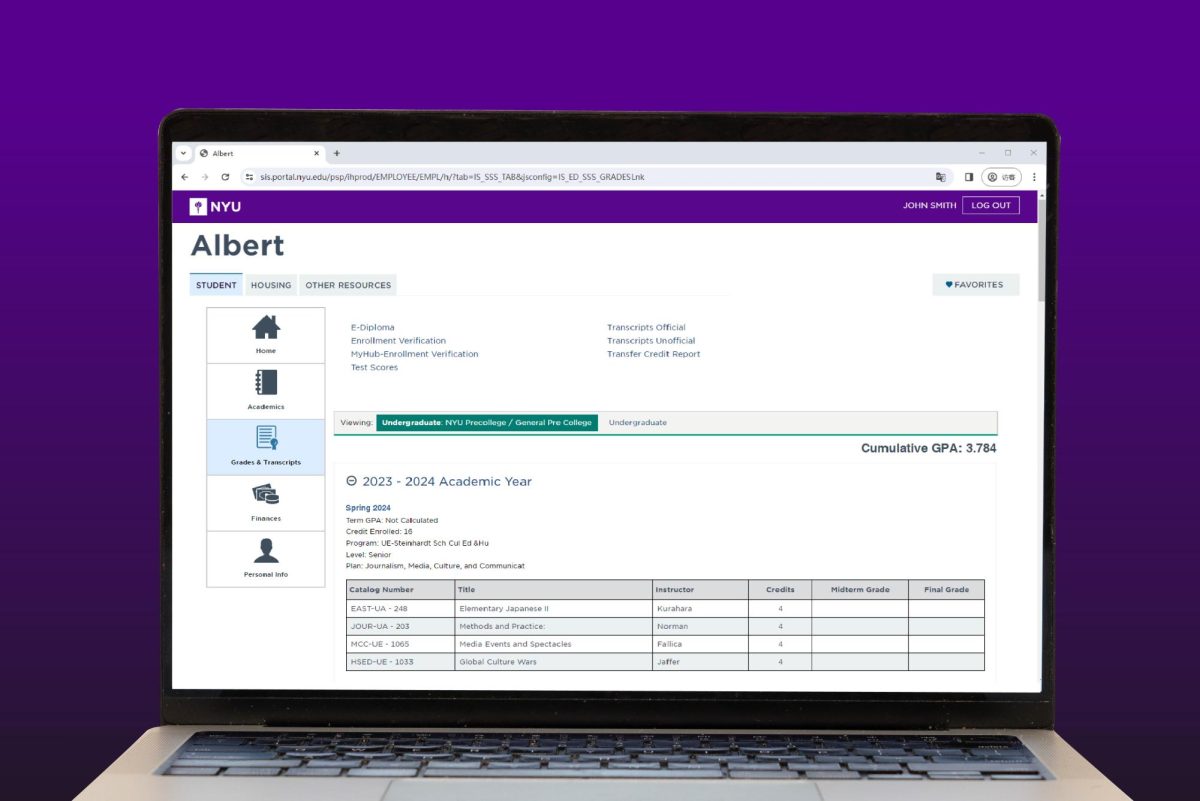Students’ midterm grades will look different starting this semester, with the letter grade system being scrapped in favor of progress reports. Rather than finding their midterm grades in Albert, students will now see one of three possible indications of their progress in each class on NYU Connect: “Strong Progress,” “Satisfactory Progress” and “Concerns about Progress.”
All undergraduate programs, as well as graduate programs at the Tisch School of the Arts and the School of Professional Studies, will comply with the change, according to university spokesperson John Beckman. After faculty submit their feedback, students will receive an email notifying them if their professor has any additional comments or resources.
“Midterm grades were intended to provide additional feedback on a student’s standing in a course halfway through the semester,” Beckman said. “But they’ve worked less well than the university might have hoped; in part, that’s because assigning an overall letter grade in the middle of the semester can be misleading.”
Discussions about changing the midterm reporting system began after the Student Senators Council, which represents students in NYU’s highest deliberative body, expressed concerns to the university’s Undergraduate Academic Affairs Committee about the low rate of professors submitting midterm grades in 2018. In an advisory message in response to the SSC’s concerns, the UAAC wrote that only 57% of midterm grades were submitted for undergraduate courses in the fall 2018 semester.
Beckman said that the UAAC’s advisory ultimately motivated the change. The advisory included suggestions to increase midterm report submissions, such as adding “non-grade options,” saying that midterm letter grades were “not a fair assessment” because they were not reflective of a student’s final performance in a class.
CAS professor Lourdes Dávila — who was a part of a faculty focus group that helped make the decision — said that the group spent a lot of time trying to find specific phrasing for the new system. Dávila said that they took into consideration that students might find the new system “less specific” than letter grades.
“We argued that these terms and phrases may not seem as clear to many students and professors as GPA metrics,” Dávila said. “However, we agreed that although the definition of these words might differ slightly among professors and disciplines, it could increase the amount of reporting and give students an additional and good idea of standing.”
Contact Bruna Horvath at [email protected].























































































































































